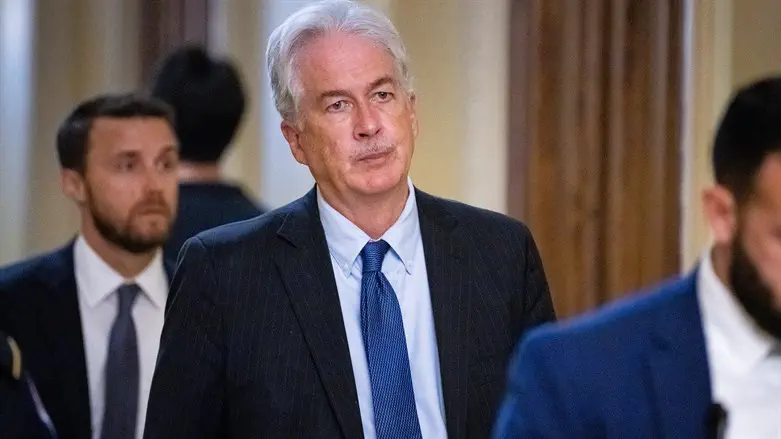
CIA Director William Burns said negotiations for a ceasefire and the release of Israeli hostages stalled because Hamas rejected the latest proposal put forth by Israel, Qatar and Egypt, putting the blame for a lack of progress in talks squarely on the terrorist group.
Burns’ comments were made on Thursday at the George W. Bush Presidential Center in Dallas and were quoted by The New York Times.
Burns, who serves as the lead American negotiator, traveled to Cairo earlier this month and pushed what he called “a far-reaching proposal” that Egyptian and Qatari negotiators took to Hamas. The proposal contained an offer to allow some Gazans to return to the northern part of the enclave, a key Hamas demand.
The CIA chief did not describe the details of that proposal, but said that so far Hamas has not accepted it.
“It was a deep disappointment to get a negative reaction from Hamas,” Burns said, according to The New York Times. “Right now, it’s that negative reaction that really is standing in the way of innocent civilians in Gaza getting humanitarian relief that they so desperately need.”
Burns also said he could not guarantee that the current talks would succeed.
“And it breaks your heart because you can see in very human terms what’s at stake here as well,” he added.
Earlier this week, the Prime Minister's Office said on behalf of the Mossad "that more than a week after the Cairo meeting - Hamas responded negatively to the outline put before it by the mediators."
"The rejection of the proposal of the 3 mediators, which included a very significant degree of flexibility on the part of Israel, proves that Sinwar does not want a humanitarian deal and the return of the hostages and continues to take advantage of the tensions with Iran and strive for the unification of the arenas and an overall escalation in the region," the statement said.
A senior Israeli official later said that Hamas' response to the mediators' latest proposal for a deal included agreeing to release only 20 of the 133 hostages it is holding, in exchange for a six-week ceasefire.
On Thursday, senior Hamas leader Mousa Abu Marzouq said that as of now, he does not know how many hostages are alive and how many are dead.
Abu Marzouq also said that Hamas is demanding first a ceasefire and the provision of immediate aid to "Palestinian refugees." Hamas is also demanding that Gazans currently in southern Gaza be allowed to return home.
(Israel National News' North American desk is keeping you updated until the start of Shabbat in New York. The time posted automatically on all Israel National News articles, however, is Israeli time.)